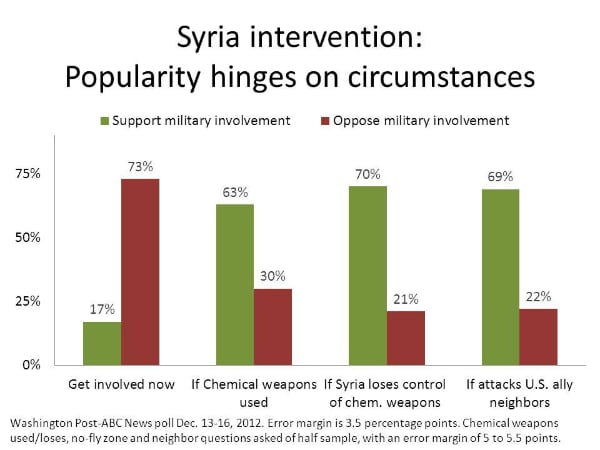Chemical weapons should not be the trigger for intervention in Syria
Amidst the ongoing conflict in Syria, the topic of chemical weapons has garnered significant attention. However, it is essential to delve deeper into the complex dynamics surrounding the use of chemical weapons and the implications of using them as a trigger for intervention. While the use of chemical weapons is undoubtedly abhorrent, there are various factors to consider before advocating for military intervention solely based on their deployment.
The complexity of the situation in Syria
First and foremost, it is crucial to acknowledge the multifaceted nature of the conflict in Syria. The civil war in the country has resulted in a humanitarian crisis of staggering proportions, with millions of people displaced and countless lives lost. Intervening in such a situation is not a straightforward endeavor and requires a nuanced understanding of the intricacies at play.
The limitations of military intervention
Heading
While the use of chemical weapons is undoubtedly a grave violation of international norms, the efficacy of military intervention in addressing this issue is questionable. History has shown that military campaigns can have unintended consequences and often fail to achieve their stated objectives. Furthermore, the use of force can exacerbate the situation on the ground and lead to further loss of innocent lives.
The importance of diplomatic solutions
Heading
Instead of resorting to military action as a knee-jerk response to the use of chemical weapons, the international community should prioritize diplomatic solutions. Dialogue and negotiation are essential in resolving conflicts peacefully and ensuring long-term stability in the region. By engaging in diplomatic efforts, countries can work towards a sustainable solution that addresses the root causes of the conflict in Syria.
The need for a holistic approach
Heading
Addressing the issue of chemical weapons in Syria requires a holistic approach that takes into account the broader geopolitical context. It is essential to consider the interests of all parties involved and work towards a solution that is acceptable to everyone. Rushing into military intervention without considering the long-term consequences can have dire repercussions and further destabilize the region.
In conclusion, while the use of chemical weapons in Syria is a grave concern, it should not be the sole trigger for intervention. Instead, the international community should focus on diplomatic solutions and strive towards a comprehensive approach that addresses the root causes of the conflict. By taking a nuanced and strategic approach, we can work towards a sustainable resolution that upholds international norms and promotes peace and stability in Syria and the wider region.

